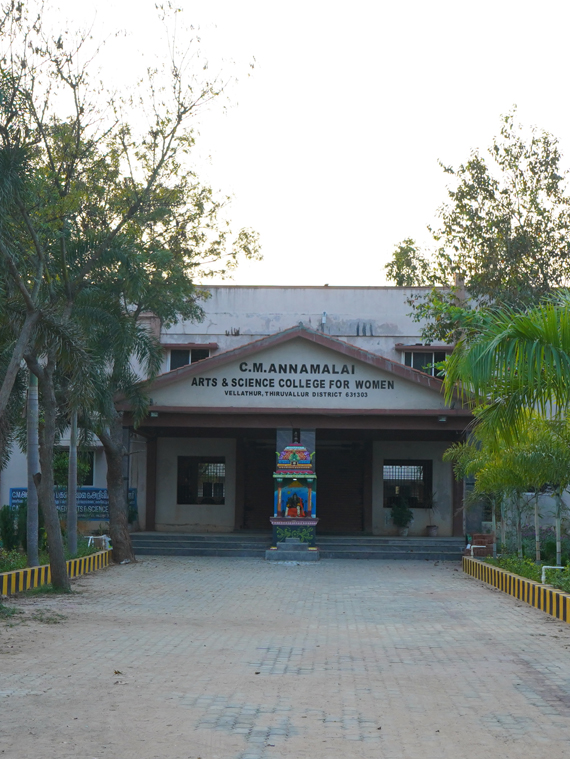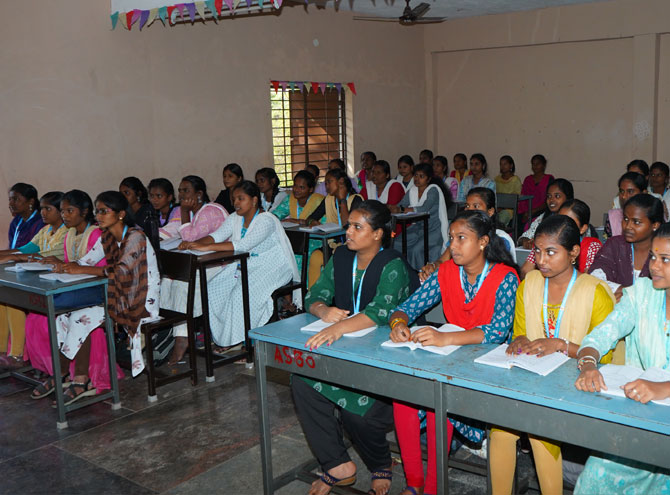Develop critical thinking, mathematical modeling, and experimental skills.
- Call Us : 98656 21964
- Mail Id : info@cmawomenscollege.com

Department of Physics
About the Department
The Department of Physics at C.M. Annamalai Arts & Science College for Women (CMAWC) was established in 2018 with the mission of imparting fundamental and advanced knowledge in physics. The department is dedicated to scientific exploration, technical expertise, and practical application of physics principles.
With state-of-the-art laboratories and modern research facilities, the department provides students with hands-on experience in experimental physics. The B.Sc. Physics program equips students with analytical, problem-solving, and technical skills, preparing them for careers in research, technology, and applied sciences.
About the Course
– B.Sc. Physics
The B.Sc. Physics course offers a comprehensive study of classical and modern physics, covering theoretical concepts, experimental techniques, and computational methods. Students gain a strong foundation in mechanics, electromagnetism, thermodynamics, quantum physics, and materials science.

The curriculum is designed to:
Enhance students' understanding of fundamental and applied physics.
Equip students with technical expertise for careers in science and engineering.
Prepare students for competitive exams, research, and higher studies in physics.

First Year
- Mechanics & Properties of Matter
- Mathematical Physics
- Thermal Physics & Thermodynamics
- Electricity & Magnetism
- Practical: Physics Lab – I (Basic Experiments)

Second Year
- Electronics & Semiconductor Physics
- Optics & Laser Physics
- Waves & Oscillations
- Modern Physics & Quantum Mechanics
- Practical: Physics Lab – II (Optics, Electronics, and Circuit Experiments)

Third Year
- Atomic & Molecular Physics
- Nuclear Physics & Particle Physics
- Computational Physics & Programming Techniques
- Renewable Energy & Material Science
- Practical: Advanced Physics Lab (Spectroscopy, Radiation, and Simulation)
Additionally, students can opt for electives such as Nanotechnology, Astrophysics, Biophysics, and Data Science in Physics, providing them with interdisciplinary exposure.

Career Opportunities
A B.Sc. Physics degree opens doors to various career paths in academia, research, industry, and technology sectors:
- Research & Development (R&D) – Research Scientist, Laboratory Technician, Experimental Physicist
- Engineering & Technology – Optical Engineer, Aerospace Technician, Nanotechnology Expert
- Electronics & IT Industry – Data Analyst, Software Developer (Physics Simulations), Computational Physicist
- Energy & Environmental Science – Renewable Energy Analyst, Climate Researcher
- Education & Teaching – Physics Lecturer, Academic Researcher, Science Communicator
- Government & Public Sector Jobs – ISRO, DRDO, BARC, Meteorological Department, Civil Services
Graduates can also pursue higher studies such as M.Sc. in Physics, Applied Physics, Astrophysics, or Nanotechnology, leading to specialized research and innovation careers.
Why Choose B.Sc. Physics at CMAWC?
- Well-equipped laboratories with advanced physics instruments.
- Expert faculty members specializing in theoretical and applied physics.
- Research-based learning approach integrating experiments, projects, and computational physics.
- Internships and industry collaborations to provide practical exposure.
- Career guidance for placements and higher studies in physics and related fields.
The Department of Physics at CMAWC is committed to nurturing scientifically driven minds, shaping future physicists, researchers, and innovators who contribute to technological advancements and scientific discoveries.
Program Learning Outcomes
Graduates of B.Sc. Physics will be able to:
- Understand fundamental laws of physics and their applications in science and technology.
- Analyze physical phenomena mathematically and experimentally to solve real-world problems.
- Conduct independent research and scientific experiments using modern laboratory techniques.
- Utilize computational tools and programming for data analysis and simulations.
- Develop innovative solutions for industries such as electronics, material science, and energy sectors.
Objectives of the Department
- To provide a strong foundation in theoretical, experimental, and applied physics.
- To encourage scientific research and innovation in modern physics applications.
- To develop problem-solving, mathematical modeling, and analytical skills in students.
- To integrate technology-driven learning through computational physics and simulations.
- . To prepare students for careers in research, teaching, industry, and competitive exams.
The department actively collaborates with research institutions and industries, allowing students to engage in practical training, workshops, and science exhibitions.
